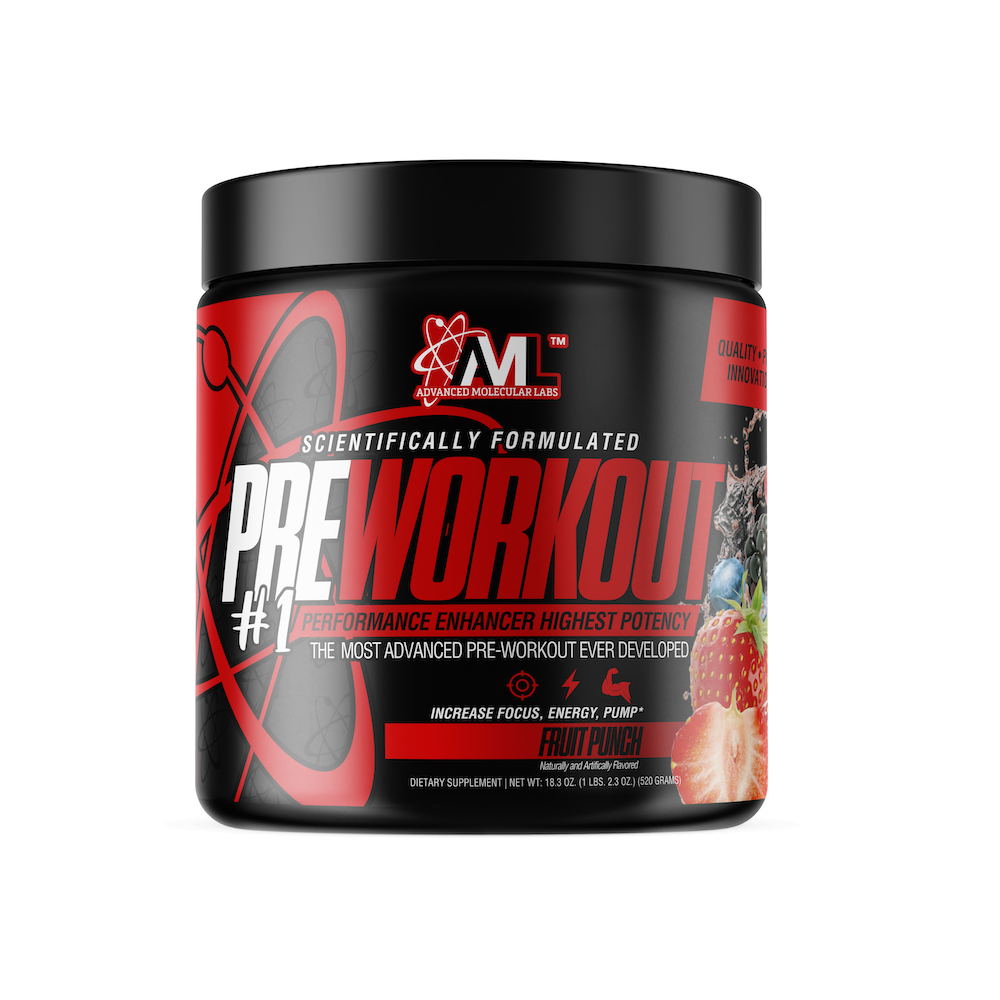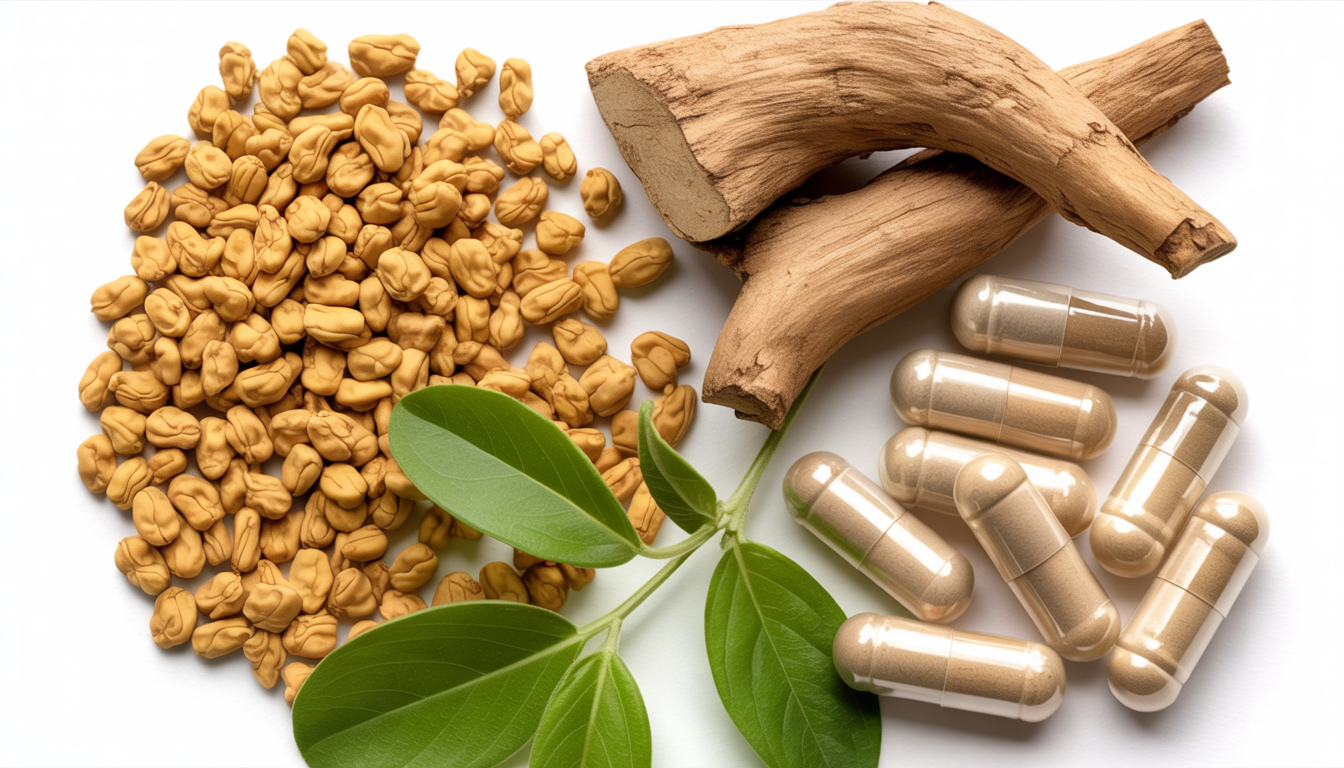


Alpha GPC Stroke: Safety & Risks
By Robert Schinetsky
Alpha-Glycerylphosphorylcholine (Alpha GPC) is a popular nootropic supplement that has been steadily gaining traction over the years in sports nutrition. In large part, this was due to a handful of small studies indicating that supplementation with Alpha GPC prior to exercise improved performance and growth hormone levels.[1,2,3,4] However, concerns about alpha GPC stroke risk have emerged, prompting further investigation.
An important caveat to keep in mind is that these studies are funded by the company who supplies Alpha GPC.
Now, this doesn’t automatically mean the studies are invalid. Funding for these studies has to come from somewhere, and the last time I checked, the FDA and NIH aren’t handing out millions of dollars for researchers to investigate ingredients that can help you increase your squat, bench, or deadlift. Still, you should always dig deeper into industry-funded studies to see how heavily involved the company supplying the product and funds was.
Tangent aside, initially Alpha GPC was a little-known nootropic mostly used by bio-hackers, techies, and other people looking to enhance cognitive function. ONly within the past 5-10 years has the supplement started to become more popular in pre workout supplements.
While the allure of increased performance and heightened cognitive function is appealing, that doesn’t mean Alpha GPC is completely benign. In fact, some new research indicates it may actually lead to serious health complications.
But, before we get too ahead of ourselves, let’s recap what Alpha GPC is and why so many brands and individuals have become infatuated with the ingredient.
What is Alpha GPC?
Alpha GPC is a natural choline compound found in the brain. Structurally, it is a choline molecule bound to a glycerol molecule via a phosphate group, essentially making it phosphatidylcholine without its two fatty acids.
Alpha GPC contains 40% choline by mass and can provide the building blocks for the synthesis of phosphatidylcholine as well as the “learning neurotransmitter” -- acetylcholine.[5]
In addition to being produced in small amounts in the body, Alpha GPC is also present in very small quantities in a number of animal foods common to the diet, including fish and meat.[6]
Supplemental Alpha GPC is typically derived from either egg, soy or sunflower lecithin.
Alpha GPC Benefits: Why Supplement with Alpha GPC?
Initially, Alpha GPC was investigated in neurological and cognitive disorders. This was due to the fact that alpha GPC provides a bioavailable source of choline that can also cross the blood-brain barrier. Other choline-containing supplements, such as choline bitartrate, cannot cross the blood-brain barrier.
A known benefit of Alpha GPC is to increase levels of acetylcholine, a neurotransmitter involved in memory, learning, focus, and the mind-muscle connection. Acetylcholine also plays a pivotal role in muscle contraction. (Note: it is through this mechanism that researchers believe that Alpha GPC supplementation may aid performance.)
Another Alpha GPC benefit includes the production of phospho- and glycerolipids, which benefits cell membrane fluidity.
Animal Studies
Animal data indicates that Alpha GPC administration may[7,8]:
- Improve memory
- Cognitive function
- Reverse amnesia
Human Data is Conflicted
Human evidence of Alpha GPC supplementation, particularly in regards to exercise performance, is limited and conflicted.
As mentioned above, alpha GPC has been investigated a handful of times for its utility in improving sports performance. However, the results of Alpha GPC supplementation, specifically, on human cognitive and physical performance are mixed. FYI, the reason that choline supplements were investigated in the first place is rooted in the fact that some research notes that during prolonged, intense, endurance exercise choline levels decline, though the same is true for dopamine too. Based on this line of reasoning supplementing with choline might make sense.
But, as we just mentioned, the results on Alpha GPC supplementation are conflicted.
For instance, Alpha GPC supplementation was found to improve bench press performance, but did not enhance strength or power.[1] Other studies note an approximate 3% increase in strength of the thigh muscles following 6 days of consuming 600mg of Alpha GPC compared to placebo, but there was no improvement noted in upper body exercise.[2,9]
A similar study using smaller doses (250 and 500mg Alpha GPC) given to participants for seven days noted a significant improvement in maximal power performance during countermovement jump for the group receiving 250mg, but not those receiving 500mg.[4]
Another small human study (19 people in total) found that Alpha GPC, in combination with a laundry list of ingredients, including caffeine, tyrosine, b-vitamins,and phosphatidylserine, improved reaction time and increased attention and in individuals undergoing acute stress.[10]
However, a limitation of this study is that they tested this multi-ingredient against a placebo. So there is no way to really discern if any single ingredient (e.g. caffeine, alpha gpc, tyrosine, etc.) was providing the benefits or the combination of ingredients.
A recent study investigating another “choline-based” supplement noted improvements in explosive strength, but again it was used in combination with many other ingredients, and wasn’t tested against a caffeine-only control.[11]
Other research indicates that taking 1000mg of Alpha GPC may increase growth hormone and hepatic fat oxidation, in addition to plasma choline levels.[12]
Based on this, a Alpha GPC supplement may or may not improve physical or cognitive performance.
Alpha GPC Risks
Alpha GPC and TMAO: May Increase Risk of Atherosclerosis & Stroke
The concern around Alpha GPC risks reside in the association between TMAO and atherosclerosis. TMAO is a metabolite generated from the breakdown of certain nutrients, including choline and carnitine. Under certain conditions (such as osmotic or hydrostatic pressure stress), TMAO is used by cells to maintain cell volume. This connection between alpha GPC and TMAO highlights the potential alpha GPC stroke risk.
However, TMAO can activate various inflammatory molecules, including the proinflammatory cytokines IL1-β and IL-18 as well as vascular endothelial cell MAPK and NFκB signaling. TMAO may also directly contribute to platelet hyperreactivity and enhanced thrombosis.
A growing body of research also finds an association between Alpha GPC, TMAO, and risk of cardiovascular disease and stroke, raising questions about alpha GPC blood pressure impacts.
Most recently, a 10-year cohort study including over 12 million human subjects (50 years or older) indicated that the use of Alpha-GPC was significantly associated with a 10-year incident stroke risk in a dose-responsive manner. To be more precise, individuals using vs not using α-GPC had a 46% higher risk of stroke.[16]
Researchers did note that while the development of stroke was associated with the duration of Alpha-GPC use, some of the individuals included in the cohort did have hypertension, which is a known comorbidity and contributing factor to cardiovascular disease.
There’s more though…
A follow-up review, published shortly after the JAMA review, on Alpha GPC supplementation concluded:
“our results show GPC promotes atherosclerosis through multiple mechanisms and that caution should be applied when using GPC as a nutritional supplement.”[17]
It should be noted that some researchers state that TMAO may not be a causative (or a protective) factor in regards to cardiovascular disease. It may simply be an indicator of “disrupted homeostasis.”[18]
Impacts the Gut Microbiome
Alpha GPC supplementation has been found to reduce the quantity of several good gut bacteria that are known to support gut barrier integrity.[17]
Supplementation with the popular nootropic also alters the composition of the gut microbiome, leading to a reduction in the prevalence of butyric acid-producing bacteria and consequently butyric acid (aka butyrate). It’s also important to realize that decreased production of short-chain fatty acids like butyrate can result in elevated levels of pro-inflammatory cytokines and chemokines.
Animal models also suggest that reduced butyric acid levels may exacerbate the progression of atherosclerosis.[17]
Alpha GPC has also been reported to decrease the abundance of Lactobacillus in the mouse gut. Lactobacillus is one of the popular and widely-researched probiotics that has been shown to improve gut barrier integrity.
May Be Cytotoxic
Yet another potential concern to add to the list of reasons to be wary of alpha GPC supplementation is that animal models (cardiac myocytes in rats) suggest that Alpha GPC may be cytotoxic.[19]
Researchers noted that short-term use of Alpha GPC under normal (healthy) conditions) had conflicted effects on cardiac cells:
“It may be beneficial in short-term administration to maintain the physiological balance of ROS production under normoxic, healthy conditions and could be also protective in I/R conditions, but could, in fact, be cytotoxic if it surrounded the cells for long enough.”[19]
So, Is Alpha GPC Safe?
So, Is Alpha GPC Safe? Technically speaking, Alpha GPC is considered a safe and non-toxic compound.[13] Furthermore, the compound is classified as GRAS (Generally recognized as safe) in the USA (GRN 000419). However, the question of 'is alpha GPC safe' remains complex due to potential alpha GPC stroke concerns.
It has been studied in individuals with neurological disorders (stroke, ischemic attack, etc.) and found to offer neuroprotective effects (using dosages between 400-1200mg per day).[14,15]
Regarding its potential ergogenic effects, any effect is likely to be small. Larger trials performed with healthy, resistance-trained individuals comparing standalone Alpha GPC versus caffeine or other standalone ingredients like tyrosine are warranted to see if the compound is truly deserving of the hype around its inclusion in pre workout supplements.
For these reasons (and more), Advanced Molecular Labs Pre Workout and productivity supplements (Dopa Rush Cocktail, Dopa Rush Shots, etc.) do NOT contain Alpha GPC (or other choline donors), opting instead for ingredients that support dopamine -- a key neurotransmitter involved in motivation, mood, decision-making and motor control. Dopamine also plays an essential role in the regulation of heart rate, blood pressure, muscle tone, visual processing, and protein synthesis.[22]
Additional studies also note the essential role dopamine plays in exercise performance as well as brown fat thermogenesis (which may be of particular interest to those seeking weight loss and body recomposition).[23,24,25,26,27,28] Collectively, this makes dopamine-precursors, such as Tyrosine and velvet bean extract, the superior option.
©Published by from Advanced Research Media, Inc. 2022
©Reprinted with permission from Advanced Research Media, Inc.
References
- Bellar D, LeBlanc NR, Campbell B. The effect of 6 days of alpha glycerylphosphorylcholine on isometric strength. J Int Soc Sports Nutr. 2015;12:42. Published 2015 Nov 17. doi:10.1186/s12970-015-0103-x
- Ziegenfuss T, Landis J, Hofheins J. Acute supplementation with alpha-glycerylphosphorylcholine augments growth hormone response to, and peak force production during, resistance exercise. J Int Soc Sports Nutr. 2008;5(Suppl 1):P15. Published 2008 Sep 17. doi:10.1186/1550-2783-5-S1-P15
- Parker, A.G., Byars, A., Purpura, M. et al. The effects of alpha-glycerylphosphorylcholine, caffeine or placebo on markers of mood, cognitive function, power, speed, and agility. J Int Soc Sports Nutr 12, P41 (2015). https://doi.org/10.1186/1550-2783-12-S1-P41
- Marcus L, Soileau J, Judge LW, Bellar D. Evaluation of the effects of two doses of alpha glycerylphosphorylcholine on physical and psychomotor performance. J Int Soc Sports Nutr. 2017 Oct 5;14:39. doi: 10.1186/s12970-017-0196-5. PMID: 29042830; PMCID: PMC5629791.
- Gatti G., Barzaghi N., Acuto G., Abbiati G., Fossati T., Perucca E. A comparative study of free plasma choline levels following intramuscular administration of L-alpha-glycerylphosphorylcholine and citicoline in normal volunteers. Int. J. Clin. Pharmacol. Ther. Toxicol. 1992;30:331–335
- Zhang K, Wang X, Huang J, Liu Y. Purification of L-alpha glycerylphosphorylcholine by column chromatography. J Chromatogr A. 2012 Jan 13;1220:108-14. doi: 10.1016/j.chroma.2011.12.003. Epub 2011 Dec 11. PMID: 22197252.
- Lee S.H., Choi B.Y., Kim J.H., Kho A.R., Sohn M., Song H.K., Choi H.C., Suh S.W. Late treatment with choline alfoscerate (l-alpha glycerylphosphorylcholine, alpha-GPC) increases hippocampal neurogenesis and provides protection against seizure-induced neuronal death and cognitive impairment. Brain Res. 2017;1654:66– doi: 10.1016/j.brainres.2016.10.011.
- Sigala S., Imperato A., Rizzonelli P., Casolini P., Missale C., Spano P. L-alpha-glycerylphosphorylcholine antagonizes scopolamine-induced amnesia and enhances hippocampal cholinergic transmission in the rat. Eur. J. Pharmacol. 1992;211:351–358. doi: 10.1016/0014-2999(92)90392-H
- Bunn J.A., Crossley A., Timiney M.D. Acute ingestion of neuromuscular enhancement supplements do not improve power output, work capacity, and cognition. J. Sports Med. Phys. Fit. 2017;58:974–979.
- Hoffman JR, Ratamess NA, Gonzalez A, Beller NA, Hoffman MW, Olson M, Purpura M, Jäger R. The effects of acute and prolonged CRAM supplementation on reaction time and subjective measures of focus and alertness in healthy college students. J Int Soc Sports Nutr. 2010 Dec 15;7:39. doi: 10.1186/1550-2783-7-39. PMID: 21156078; PMCID: PMC3009695.
- Gage M, Phillips K, Noh B, Yoon T. Choline-Based Multi-Ingredient Supplementation Can Improve Explosive Strength during a Fatiguing Task. Int J Environ Res Public Health. 2021;18(21):11400. Published 2021 Oct 29. doi:10.3390/ijerph182111400
- Kawamura T, Okubo T, Sato K, Fujita S, Goto K, Hamaoka T, Iemitsu M. Glycerophosphocholine enhances growth hormone secretion and fat oxidation in young adults. Nutrition. 2012 Nov-Dec;28(11-12):1122-6. doi: 10.1016/j.nut.2012.02.011. Epub 2012 Jun 5. PMID: 22673596.
- Brownawell AM, Carmines EL, Montesano F. Safety assessment of AGPC as a food ingredient. Food Chem Toxicol. 2011;49(6):1303–1315. doi: 10.1016/j.fct.2011.03.012.
- De Jesus Moreno Moreno M. Cognitive improvement in mild to moderate Alzheimer's dementia after treatment with the acetylcholine precursor choline alfoscerate: a multicenter, double-blind, randomized, placebo-controlled trial. Clin Ther. 2003 Jan;25(1):178-93. doi: 10.1016/s0149-2918(03)90023-3. PMID: 12637119.
- Parnetti, L., Mignini, F., Tomassoni, D., Traini, E., & Amenta, F. (2007). Cholinergic precursors in the treatment of cognitive impairment of vascular origin: Ineffective approaches or need for re-evaluation? Journal of the Neurological Sciences, 257(1-2), 264–269.doi:10.1016/j.jns.2007.01.043
- Lee G., Choi S., Chang J., Choi D., Son J.S., Kim K., Kim S.M., Jeong S., Park S.M. Association of L-alpha Glycerylphosphorylcholine With Subsequent Stroke Risk After 10 Years. JAMA Netw. Open. 2021;4:e2136008. doi: 10.1001/jamanetworkopen.2021.36008
- Wang Z, Hazen J, Jia X, et al. The Nutritional Supplement L-Alpha Glycerylphosphorylcholine Promotes Atherosclerosis. Int J Mol Sci. 2021;22(24):13477. Published 2021 Dec 15. doi:10.3390/ijms222413477
- Nowiński A, Ufnal M. Trimethylamine N-oxide: A harmful, protective or diagnostic marker in lifestyle diseases? Nutrition. 2018 Feb;46:7-12. doi: 10.1016/j.nut.2017.08.001. Epub 2017 Aug 7. PMID: 29290360.
- Tuboly E, Gáspár R, Ibor MO, et al. L-Alpha-glycerylphosphorylcholine can be cytoprotective or cytotoxic in neonatal rat cardiac myocytes: a double-edged sword phenomenon. Mol Cell Biochem. 2019;460(1-2):195-203. doi:10.1007/s11010-019-03580-1
- Synoradzki K, Grieb P. Citicoline: A Superior Form of Choline?. Nutrients. 2019;11(7):1569. Published 2019 Jul 12. doi:10.3390/nu11071569
- Li X, Su C, Jiang Z, et al. Berberine attenuates choline-induced atherosclerosis by inhibiting trimethylamine and trimethylamine-N-oxide production via manipulating the gut microbiome. NPJ Biofilms Microbiomes. 2021;7(1):36. Published 2021 Apr 16. doi:10.1038/s41522-021-00205-8
- Gilbert C. Optimal physical performance in athletes: key roles of dopamine in a specific neurotransmitter/hormonal mechanism. Mech Ageing Dev. 1995 Oct 13;84(2):83-102. doi: 10.1016/0047-6374(95)01635-x. PMID: 8788237.
- Zheng X, Hasegawa H. Central dopaminergic neurotransmission plays an important role in thermoregulation and performance during endurance exercise. Eur J Sport Sci. 2016 Oct;16(7):818-28. doi: 10.1080/17461391.2015.1111938. Epub 2015 Nov 19. PMID: 26581447.
- Roelands B, Hasegawa H, Watson P, Piacentini MF, Buyse LD, Schutter G, Meeusen RR. The effects of acute dopamine reuptake inhibition on performance. Med Sci Sports Exerc 2008;40:879–85
- Jongkees BJ, Hommel B, Kühn S, Colzato LS. Effect of tyrosine supplementation on clinical and healthy populations under stress or cognitive demands--A review. J Psychiatr Res. 2015 Nov;70:50-7. doi: 10.1016/j.jpsychires.2015.08.014. Epub 2015 Aug 25. PMID: 26424423.
- Ruttimann Y, Schutz Y, et al. Thermogenic and metabolic effects of dopamine in healthy men. Crit Care Med 1991;19, 1030-1036.
- Hull KM and Maher TJ. Effects of L-tyrosine on mixed-acting sympathomimetic-induced pressor actions. Pharmacol Biochem Behav 1992;43, 1047-1052.
- Kohlie R, Perwitz N, Resch J, Schmid SM, Lehnert H, Klein J, Iwen KA. Dopamine directly increases mitochondrial mass and thermogenesis in brown adipocytes. J Mol Endocrinol. 2017 Feb;58(2):57-66. doi: 10.1530/JME-16-0159. Epub 2016 Dec 6. PMID: 27923872.








